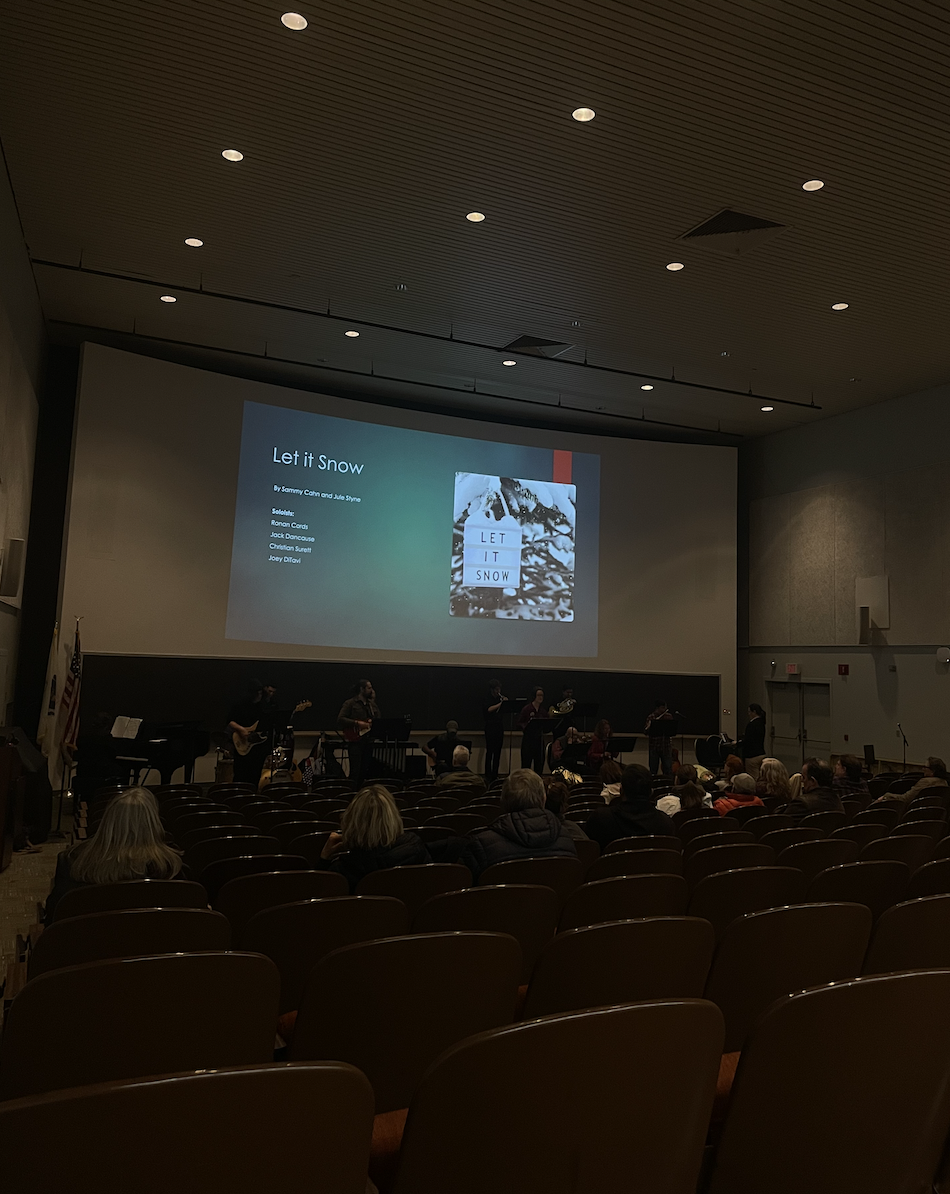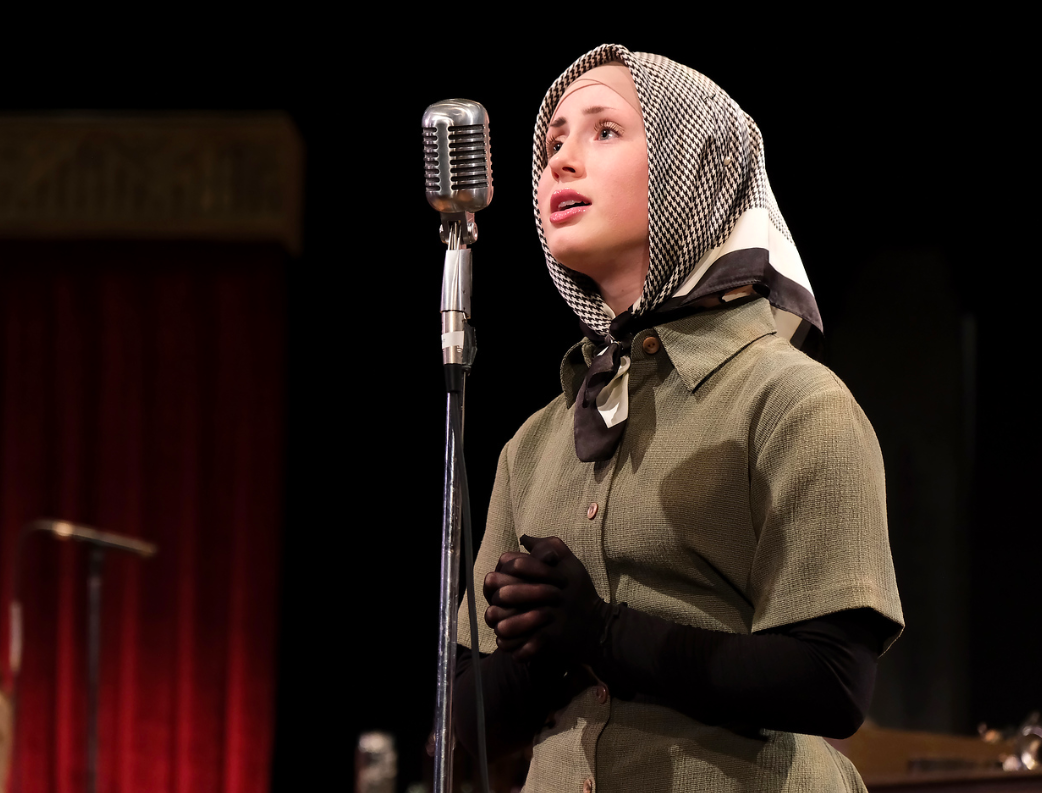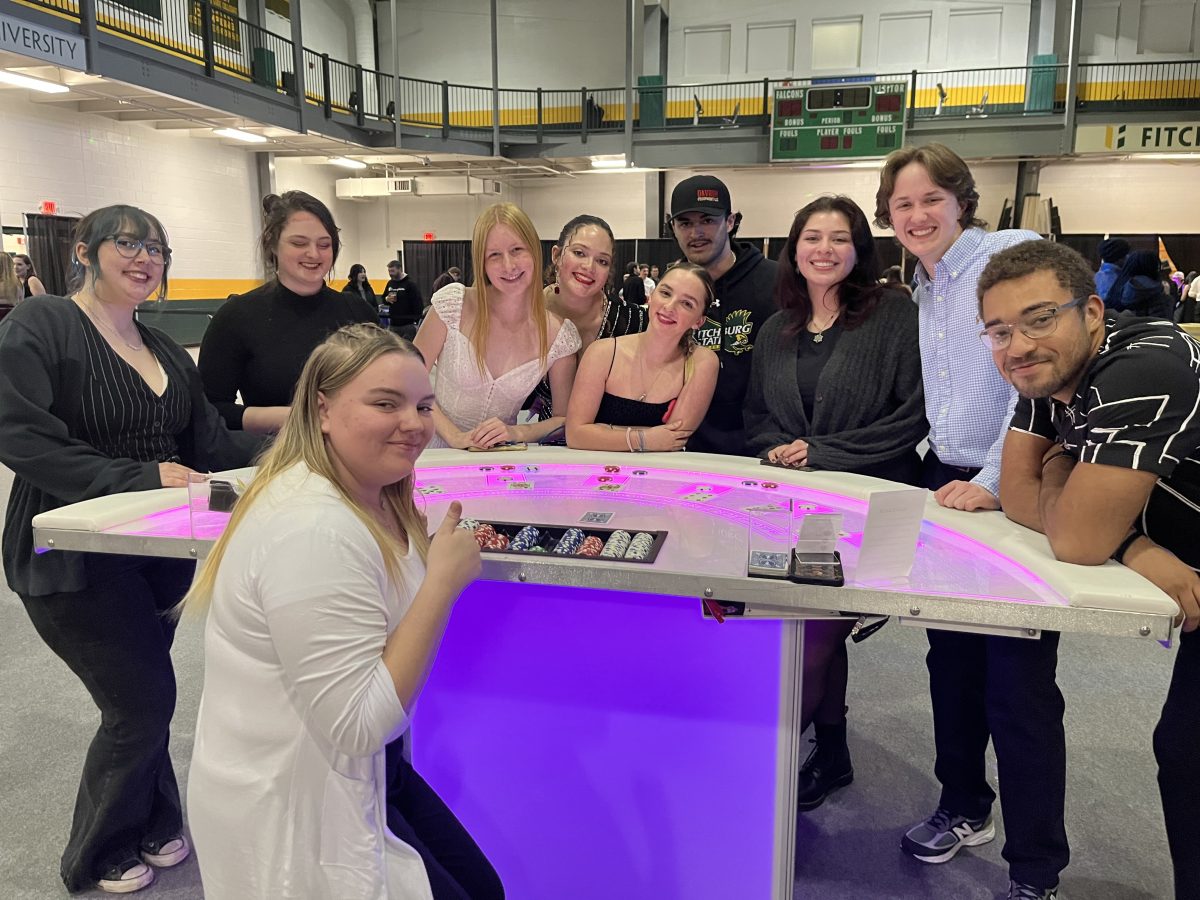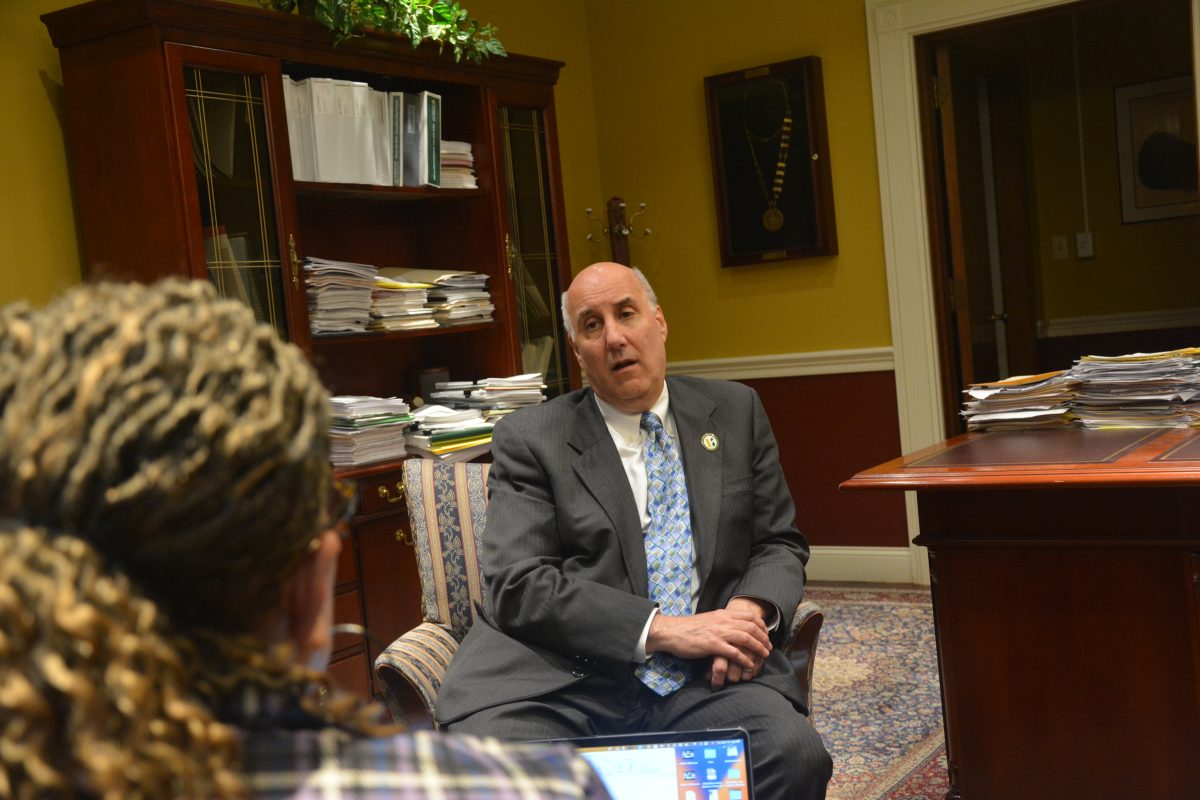By Cillea Houghton
As you walk around campus, you may have seen the green and blue bins bestowing the universal symbol for recycling.Or maybe you took notice of the new automatic toilets and sinks in some of the bathrooms of our buildings.
While such items are noticeable to the naked eye, it may come as a surprise that, behind the scenes, Fitchburg State University does a lot to help protect the environment.
Mary Beth McKenzie, Executive Director of Administrative Service at FSU, works a great deal with sustainability on campus. Sustainability, she describes, is a “reduction in the use of resources.”
According to McKenzie, the university has made some significant steps in becoming more eco-friendly. About seven or eight years ago, the boiler on campus was converted from #6 fuel oil to natural gas, a conversion that has reached positive results.
“[It’s had] a pretty significant impact,” says McKenzie, “It’s helped us drop our overall greenhouse gas emissions by 10%.”
The boiler, which is the biggest energy user on campus, produces heat and hot water for 18 buildings, including the resident halls.
In addition to the updated boiler, back in 2008, SGA began the recycling program, which is still present today.
“[We] divert a number of waste out of our waste stream into recycling,” says McKenzie, revealing that paper, plastic, cans, and bottles can all go into any recycling bin on campus.
But responsibly disposing of waste isn’t the only way our campus has become more environmentally conscious. Within the last two years, solar energy panels have been placed on the roofs of the Sanders and Anthony buildings, which generate electricity from sunlight.
McKenzie explains that these solar panels generate 100,000-kilowatt hours of electricity. In other words, the energy produced from these panels could power the electricity of 10 households for one year.
Along with the Sanders and Anthony buildings, the Exercise Science building on 155 North Street also got its own eco-friendly makeover. In place of fossil fuels, groundwater obtained through an underground pump is now used to heat and cool the building.
Renovations to the new Hammond building also incorporated environmentally friendly tactics. The carpets do not “off gas,” or release a chemical odor, while the newly installed HVAC systems have minimized emissions from refrigeration. Automatic lighting and toilet controls have also been put in place to save both electricity and water.
While McKenzie has been a strong motivator in becoming more eco-friendly, she is not the only one passionate about this issue. Chris Picone, biology professor here at Fitchburg State, is described by McKenzie as a “very powerful voice in encouraging [the University] to not forget its responsibility for sustainability.”
A few years ago, he played a strong part in the electricity contest that took place on campus. Whichever building could reduce their energy consumption the most was named the winner.
“We saved thousands of dollars a month,” Picone says on behalf of the contest. Picone also revealed that the contest will take place again this year.
While the eco-friendly advocate believes FSU’s efforts are a strong step in the right direction, he also feels we are nowhere near the finish line.
“We have a very long way to go; we’re not really consistent. We have some real, but still very small impacts,” he says, “In the long run, I think they’ll save a lot of energy.”
But Picone stresses that it’s the little things that can leave the biggest impressions.“If we really want to have an impact, we can start by turning off the lights, turning down heat in the winter, and unplugging unnecessary chargers, TV’s, etc.,” he says.
McKenzie echoes this statement.“If you multiply by a thousand people, that’s a big impact,” she states.
Both McKenzie and Picone agree that limiting our environmental impact is crucial to both the university and the community at large.
“It’s important for the university to act as a role model for both students and the community,” says McKenzie.
“We should care because we want to pass on a healthy planet to the next generation. We have to do this; we have to move on from fossil fuels. [We] save money, more sustainability, and less greenhouse gas emissions,” Picone says.
While saving money is a strong positive to our eco-friendly techniques, both sustainability advocates feel that students could play a larger role in helping the school become more environmentally conscious.
“I think they could be more involved,” admits McKenzie, “Behavior change is a big way to impact the environment; I think there’s more opportunity for that.”
“I would love to hear ideas from students,” agrees Picone, “I would love to see the students more engaged.”
Picone wants the idea of sustainability to be a defining statement when people enter FSU. “When you step on to the campus, I want sustainability to be an important message”, he says.






